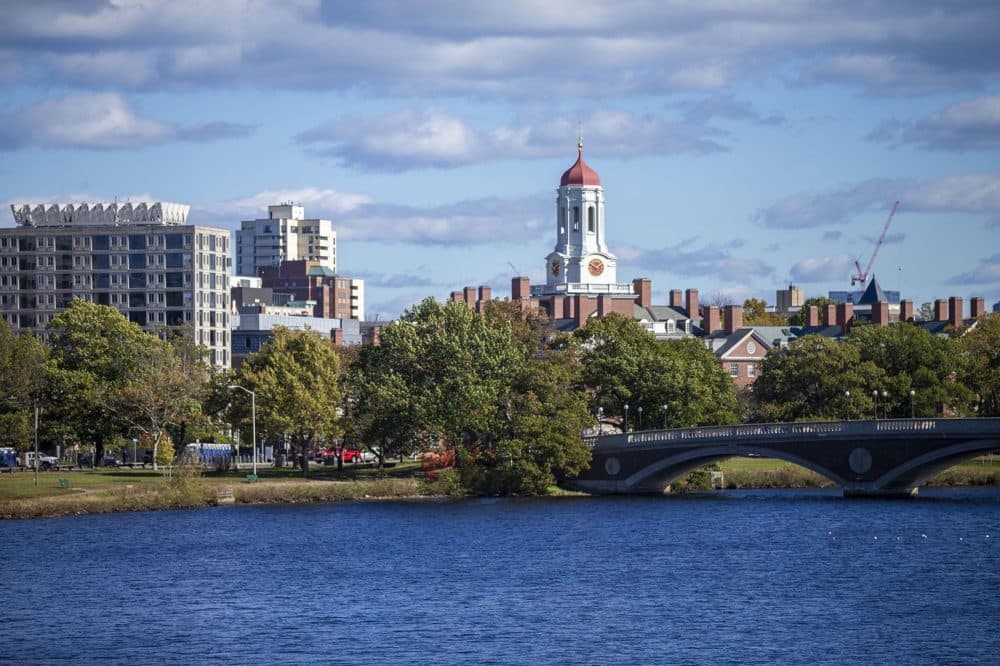Advertisement
Harvard And MIT Sue To Block Tougher ICE Policy On Student Visas

Two days after U.S. immigration officials announced a rule requiring international students to enroll in at least some in-person learning this fall to remain in the country, Harvard College and the Massachusetts Institute of Technology have sued to block its implementation.
In a suit filed jointly Wednesday morning in U.S. District Court, attorneys for the two universities said the Immigrations and Customs Enforcement (ICE) rule “leaves hundreds of thousands of international students with no educational options within the United States," just weeks before fall classes are set to begin.
Harvard plans to offer online instruction only this school year, while MIT will allow for limited in-person teaching for practical or lab-based work. Both institutions plan to tightly restrict how many students return to their campuses to reduce density and the risk of a coronavirus outbreak.
As in a recent case regarding the Deferred Action for Childhood Arrivals (DACA) program, the suit argues that ICE’s policy change is “arbitrary and capricious.” It cites language in ICE’s March 13 policy allowing international students on F-1 and M-1 visas to take online courses “for the duration of the emergency.”
A spokesperson for ICE said the agency is "unable to provide further comment due to pending litigation."
The rate of new COVID-19 cases has declined in recent weeks in Massachusetts, but cases are on the rise in 46 states and Puerto Rico — in some places, steeply.
The Harvard/MIT suit asks the court to issue an injunction blocking the policy, citing the limited time afforded to them — and their international students — to adjust to its terms.
The policy change represents a partial return to the status quo: F-1 and M-1 visas have long traveled with restrictions on online learning. But in an email to the Harvard community Wednesday, University President Lawrence Bacow said ICE’s order “came down without notice — its cruelty surpassed only by its recklessness.” Bacow said it appears to be an attempt to force institutions to conduct at least some instruction in person, despite reasonable concerns about health and safety.
On Tuesday, Massachusetts Attorney General Maura Healey announced her own plans to sue over the policy, calling it “cruel” and “illegal.”
Other university presidents, like Northeastern University's Joseph Aoun, are also denouncing the policy.
“While we believe the hybrid-flexible model we have developed at Northeastern will insulate our international students from the pernicious effects of the new rule, we steadfastly oppose this divisive approach," Aoun said.
